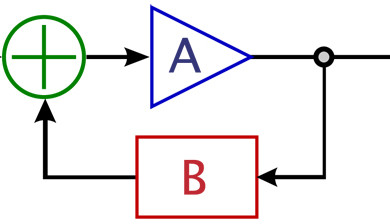Watch out for oscillations!
August 05, 2016
on
on

Ohms law, law of the jungle, natural law, "Law of God"... the word Law is often confusing as it has many meanings, often at odds with each other. Here, we use it to signify what universally rules electricity and physics. Once scientifically demonstrated, these laws are immutable.
Otherwise, it means the rules that humans enact to frame our freedom, as in “The right to do anything the laws allow” (Montesquieu). That complicates things, because these laws are neither universal or immutable. They are made within a given context to (try to) conserve it or, on the other hand, to force a change.
Now, I just read the pleadings of an eminent professor of robotics who, tired of the inertia of our judicial yoke, calls for us to imagine new forms of regulation. He did not say if he dreamed of a device to – as we do so well in electronics – introduce a real time feedback into the legislative control-loop. But he proposes – a sign of the times – to incorporate into the laws of our societies, upon their establishment, an expiry date which would force our legislators to periodically re-examine them.
Will this establish a judicial fickleness that will rid us of obsolete or inflexible laws? Electronics tells us: watch out for oscillations!
Otherwise, it means the rules that humans enact to frame our freedom, as in “The right to do anything the laws allow” (Montesquieu). That complicates things, because these laws are neither universal or immutable. They are made within a given context to (try to) conserve it or, on the other hand, to force a change.
Now, I just read the pleadings of an eminent professor of robotics who, tired of the inertia of our judicial yoke, calls for us to imagine new forms of regulation. He did not say if he dreamed of a device to – as we do so well in electronics – introduce a real time feedback into the legislative control-loop. But he proposes – a sign of the times – to incorporate into the laws of our societies, upon their establishment, an expiry date which would force our legislators to periodically re-examine them.
Will this establish a judicial fickleness that will rid us of obsolete or inflexible laws? Electronics tells us: watch out for oscillations!
Read full article
Hide full article


Discussion (0 comments)